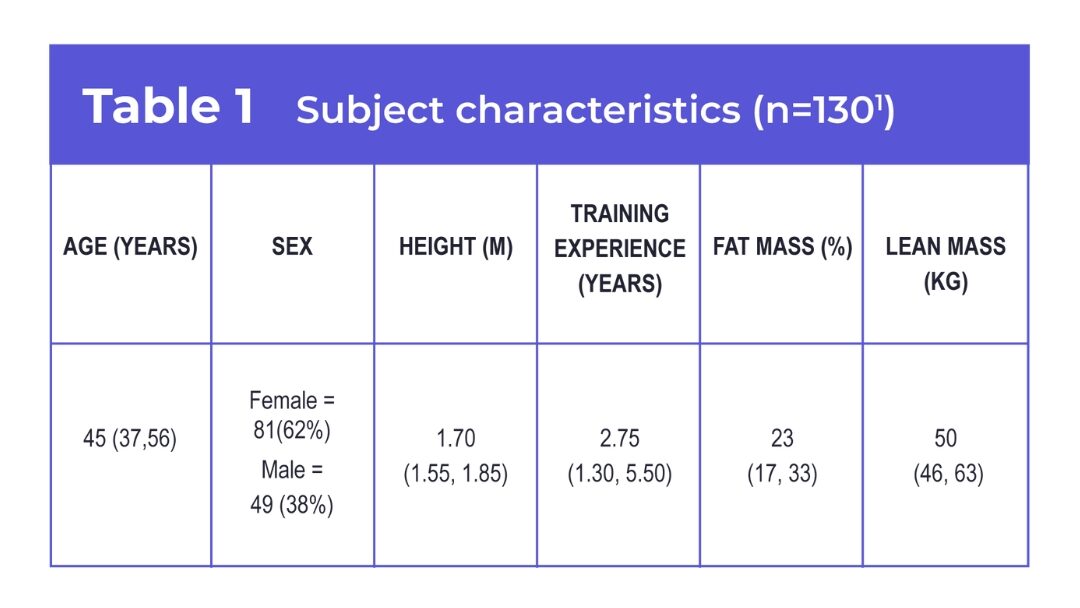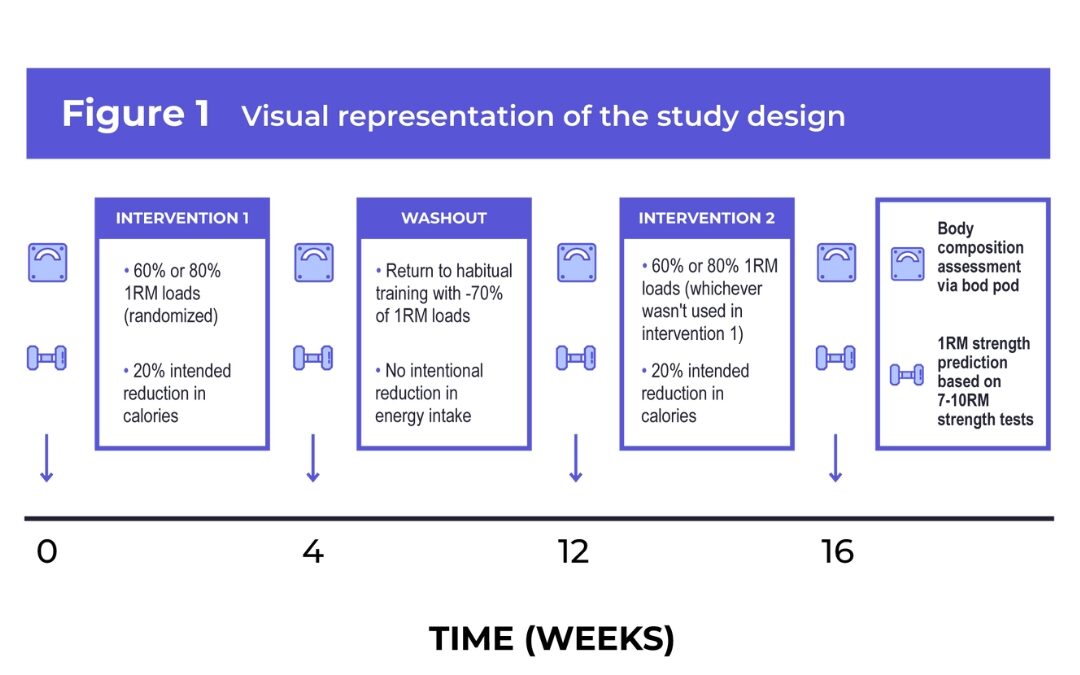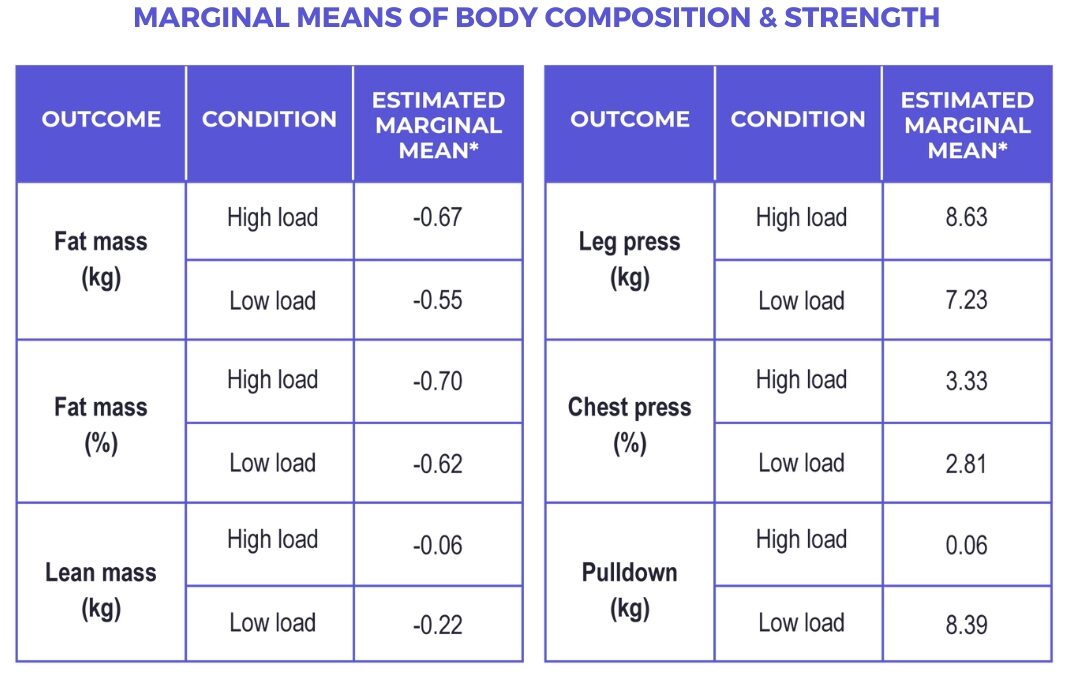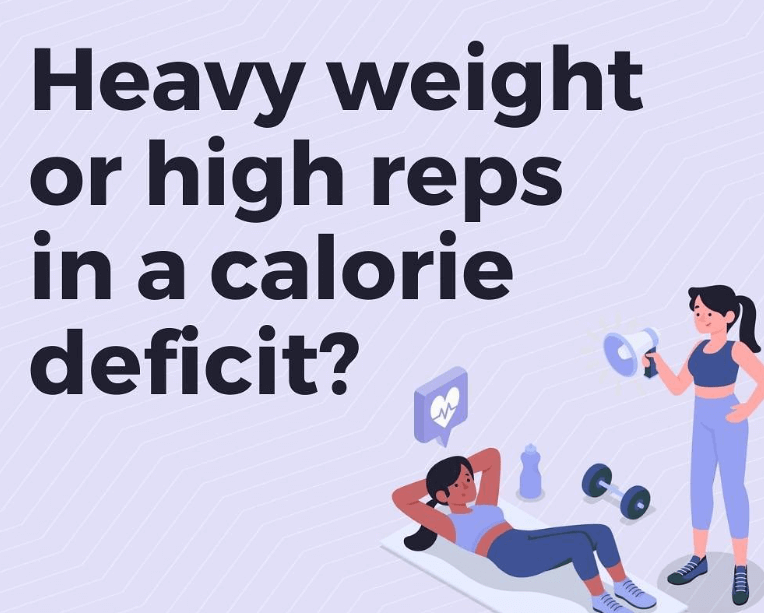INTRODUCTION
There’s a lot of debate about the optimal approach to training when you’re in an energy deficit.
Some people argue that you should focus on maintaining training loads while reducing training volume.
While others should focus on keeping training volume high, even if exercise loading needs to be reduced.
AIM OF THE STUDY
A study by Carlson and colleagues in 2022 has finally provided some relevant data for this debate.
PMID: 35998256
No studies have compared resistance training loading strategies combined with dietary intervention for fat loss.
Thus, the aim of the study is to analyse which is more effective during a deficit: high reps or heavy weights?
PARTICIPANTS
The study is a 130 subjects trial, employing a randomised crossover design.
Middle-aged subjects with at least 6 months of training experience completed the study.

EXPERIMENT
The study employed a four-week period of heavier (~80% of 1RM; <10 reps per set) resistance training and a four-week period of lighter resistance training (~60% of 1RM; <20 reps per set) resistance training, with an eight-week washout period between the intervention periods.

- When subjects completed more than 10 reps in a set when training with heavier loads or more than 20 reps in a set when training with lighter loads, training loads would be increased by 5%.
- They were instructed to consume 20% fewer calories than their estimated maintenance needs while aiming for 1.5 grams of protein per kilo of body mass.
(e.g. 70 kg – 105 g of protein)
- During the washout period, subjects returned to their habitual training program. Body composition was assessed via BodPod.
RESULTS
Both interventions showed small statistically equivalent reductions in fat mass.
HEAVY LOAD = -0.67 kg LIGHT LOAD = -0.55 kg

Changes in body fat percentage and lean mass were also minimal. Strength increases were small and similar between conditions.
Overall, both approaches to training produced nearly identical results.
- Subjects didn’t lose a ton of fat or gain a ton of lean mass in either condition.
- Gains in strength were also similar between groups.
- There were virtually no changes in strength or body composition during the 8-week washout period.
CONCLUSION
The researchers concluded that fat loss reductions are not impacted by resistance training load.
Both heavy load & light load produce similar, yet small, changes to body composition over a 4-week intervention.
However, the maintenance of both lean mass and strength highlights the value of resistance training during the dietary intervention.
NEXT STEPS
In the end, it is possible that either heavier or lighter training may be more effective for you when you are in a calorie deficit.
Currently, the only way to determine which method will work better for you is to try both and see which one gives you better results.
Want to dive deeper into enhancing your mindset and nutrition?
Try out our free mindset and nutrition masterclass.
Plus, you’ll get exclusive access to experience some of our on-demand workout collections.

